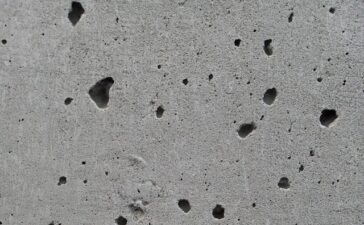One of the first things people notice about you is your smile, therefore maintaining healthy teeth is crucial. Maintaining healthy teeth and gums requires routine dental exams and cleanings. In addition to aiding in the prevention of cavities and gum disease, they can also spot early indications of other health issues. Continue reading to find out more about the advantages of routine dental checkups with a Berwick dentist if you want to keep your smile looking its best!

What advantages come with routine dental exams and cleanings?
Maintaining good oral health requires routine dental examinations and cleanings. Regular dental checkups can help identify any possible problems before they develop into larger ones, thereby saving you both time and money.
Your dentist will evaluate your mouth, teeth, gums, tongue, and mouth for any indications of disease or decay during a dental check-up. When these problems are identified early, they can be rapidly and successfully addressed before they get worse. To get a better look at your teeth beneath the surface, your dentist may also use x-rays.
Another crucial component of routine dental care is brushing and flossing your teeth. Plaque buildup on your teeth that may have escaped detection during brushing or flossing is removed by a professional cleaning. Plaque removal on a regular basis helps maintain oral health because it prevents tooth decay and gum disease.
Regular checkups can enhance general health by detecting early warning symptoms of various diseases like diabetes or heart disease through an examination of the mouth, in addition to improving oral health.
The maintenance of proper dental hygiene practices and the promotion of general health both require regular check-ups and cleanings from a Berwick dentist.
What takes place during a dental examination?
Your dentist will assess your general oral health and search for any indications of potential problems during a dental check-up. This entails examining the teeth for cavities, gum disease, and other issues that might later develop into more severe concerns.
Your dentist will probably start by inquiring about any alterations or issues you have with your teeth or gums. They might also use this time to go over any drug updates or modifications to your medical history since your previous visit.
The actual examination comes next. Each tooth will be carefully examined by your dentist, who will be looking for indications of decay or injury. To take a closer look at particular areas of concern, they might also employ specialised equipment like mirrors and probes.
The soft tissues around the teeth, such as the gums, tongue, and cheeks, will also be examined in addition to the individual teeth, and any anomalies, such as patches or growths, will be noted.
Last but not least, your dental hygienist can assist in removing tartar buildup during these sessions on the surfaces between teeth where it is challenging to reach with brushing alone.
They use a variety of equipment to thoroughly clean all surfaces, promoting healthy gum tissue and eradicating dangerous germs from hard-to-reach areas. The result is breath that lasts longer than it would with only at-home brushing.
Overall, regular checkups enable dentists to identify warning signs before they cause significant discomfort, thus saving both time and money.

What occurs when you clean your teeth?
Your dental hygienist will use specialised instruments during a teeth cleaning to get rid of any plaque and tartar accumulation on your teeth. Due to its role in preventing tooth decay and gum disease, this procedure is crucial for maintaining good oral health.
Examining your mouth for any indications of decay or other conditions that could need additional treatment is the first stage in the cleaning procedure. This makes it possible for the hygienist to spot any problem areas before they worsen.
The hygienist will then clear your teeth of any significant amounts of material using an ultrasonic scaler. This tool uses high-frequency vibrations to remove tough deposits that are resistant to removal by a standard toothbrush.
The hygienist will use hand-held tools like scalers and curettes to completely clean each tooth after the initial cleaning. Additionally, they will apply a specific paste to polish your teeth, removing any surface stains brought on by food and drink.
A fluoride treatment may be given to you to help strengthen your enamel and protect it from further harm. It’s simple to maintain good oral health and keep your smile looking its best by scheduling routine dental cleanings!





